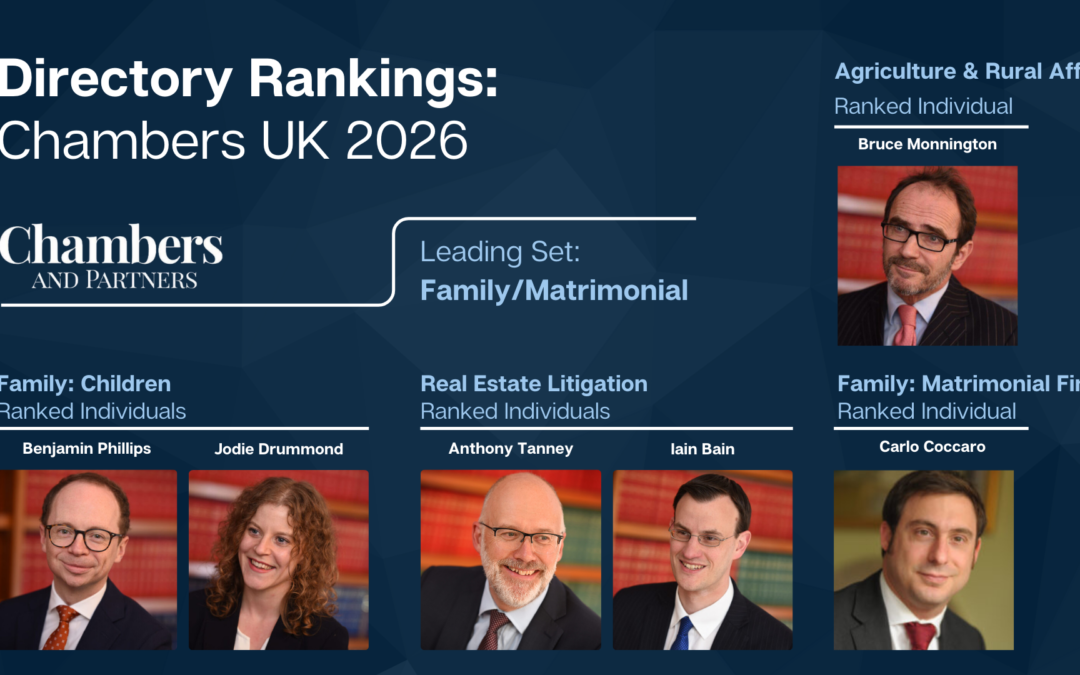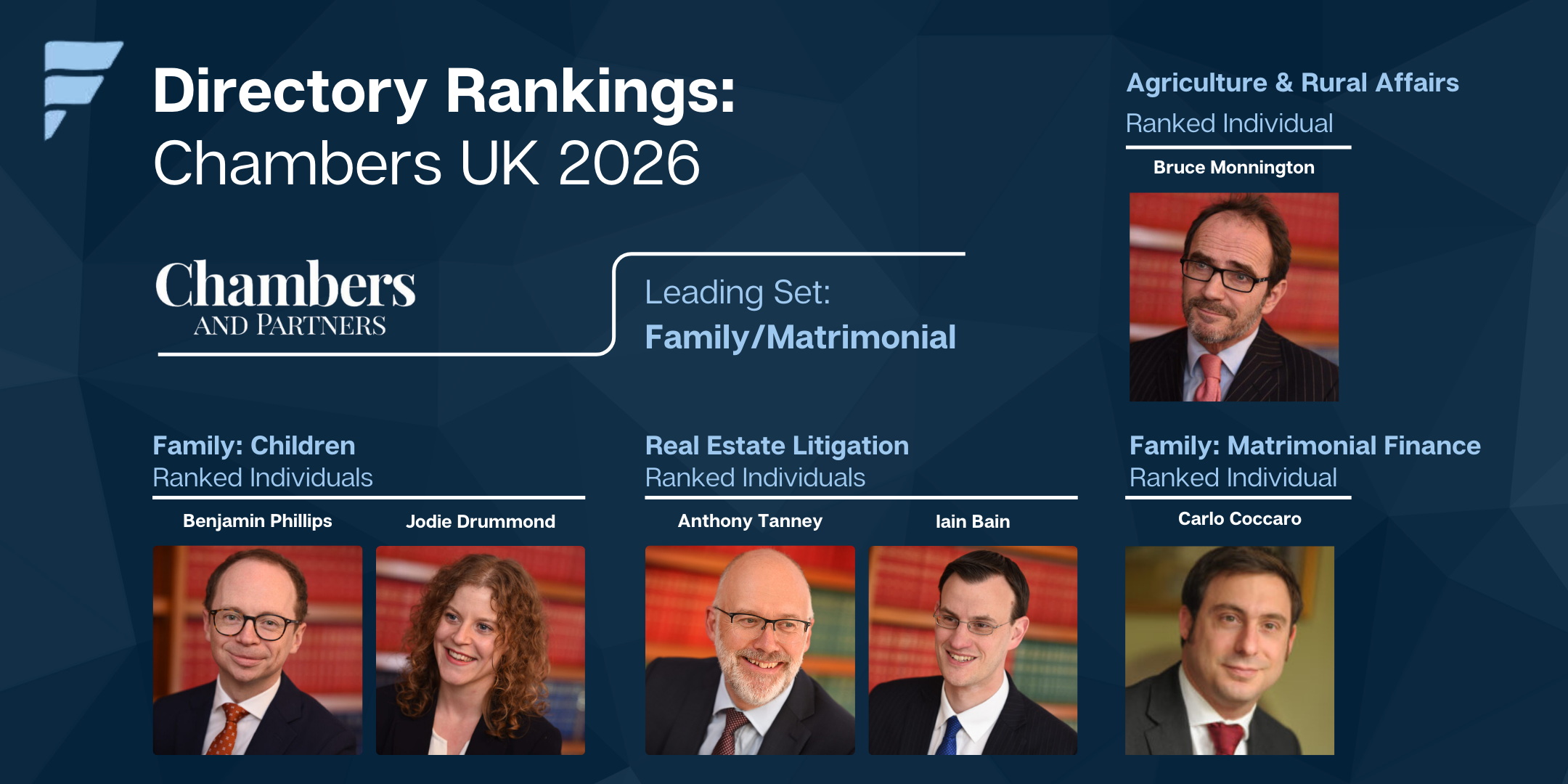
by Admin | Chambers

We were delighted to welcome colleagues and instructing solicitors to Fenners Chambers for our recent Christmas drinks, providing an opportunity to come together and share a festive toast at the end of another busy year.
Chambers was beautifully decorated for the season, creating a warm and welcoming atmosphere for the evening. Guests enjoyed delicious food from Puddini at the Deli, and members of the Fenners team added to the festivities with a selection of traditional carols, which were very well received.
We would like to thank all those who joined us to celebrate the festive season, and in particular our instructing solicitors for their continued support throughout the year.
From all at Fenners Chambers, we wish our clients and colleagues a very Happy Christmas and a prosperous 2026.
A note about Christmas hours:
Fenners Chambers will close at 1.00pm on Tuesday 23rd December. Chambers will be open remotely from Monday 29th December to Wednesday 31st December, between 9.00am and 1.00pm, before reopening as usual in from the 2nd January in the New Year.

by Admin | Chambers
We are proud to announce that Fenners Chambers has once again been recognised in the 2026 Chambers & Partners UK Bar Directory.
Fenners Chambers has maintained ranking as a leading set for Family/Matrimonial on the South Eastern Circuit, reflecting the continued strength of our family law practice.
In addition, a number of our barristers have received individual recognition in the South Eastern Circuit:
We thank the Chambers & Partners research team, and are especially grateful to our clients and professional colleagues whose feedback and continued trust underpin this recognition.

by Admin | Chambers
Fenners Chambers is delighted to welcome David Gyulai, Samuel Walker, Amelia Marshall, and Abaigeal Van Deerlin as they begin their pupillage with us.
We’re excited to see all that they’ll accomplish over the coming year and look forward to supporting them as they take this next step in their careers at the Bar.
Welcome to the Fenners family!

by Admin | Chambers

Everyone at Fenners was very saddened to learn that His Honour Jonathan Haworth has died.
Lamb Building, a long-established London chambers, opened its Cambridge annexe on 7 May 1973. Jon was the founding member, being joined by three other young barristers over the summer. Although formally remaining an annexe for several years, Fenners gradually became an independent chambers by an almost imperceptible process. In the same way, Jon emerged as head of chambers without a formal election.
Jon was both a talented lawyer and a persuasive advocate. Jon’s success was not achieved by trying to harry witnesses or tie them into logical knots. His approach to cross-examination or addressing a jury was more akin to an angler tickling trout. Jon not only led us through the process of gradual independence, but also from rented accommodation in Regent Street to our first freehold premises in Gresham Road, and then to the Stone House in 1990. Typically, when our move was imperilled by difficulties created by council planning officers, Jon sorted it out by shmoozing the Mayor.
By the time we found ourselves at the Stone House, it was clear that Jon’s long term ambition was to become a Crown Court judge. He was appointed an assistant recorder in 1990, then a full recorder, and in 1996 became the first member of Fenners to be appointed a circuit judge. For the first few years, Jon sat in Chelmsford. For most members of chambers, the daily drive to and from Chelmsford would have been a real burden, but not for Jon. As well as being an extraordinarily laid back- and speedy- driver, it was somehow typical of Jon’s seemingly perpetual good luck that his new workplace involved a three-minute drive from home to the Duxford junction on the M11 and thence a quick romp down the motorway to Chelmsford.
In 1999, Jon moved back to Cambridge, as the resident judge of the Cambridge Crown Court, where, typically, he oversaw the move of the Court to its new site. Jon remained a judge in Cambridge until his retirement. Because of the increasingly specialist nature of the Bar, by 1999 most of us specialised in civil or family work, so sadly never appeared before Jon. My one occasion was an appeal from the Wisbech magistrates. It was also the only occasion my opponent Geraint Jones- another longstanding member of Fenners and a fellow property lawyer- did so. My client had chopped his pear tree down. The question was, “could a tree preservation order include a pear tree planted in a private garden?” Jon dealt with the dispute with aplomb; he obviously found it a splendid diversion from his normal work, but treated it with the same seriousness, tinged with amusement, that those who appeared before him regularly say marked his approach on the bench.
Jon was a devoted family man. He and Gitte met as students in London and were married before Jon joined chambers. They moved to Duxford a few years later, where they brought up their children, Nicholas and Suzanna.
Jon was not what one could call a slave to exercise: “why walk when you can drive” could well have been his motto, and over the years his leisure pursuits included model railways and historic computer systems. Despite this, until his retirement Jon had been in good health. However, he developed diabetes and subsequently leukaemia. By 2025, the leukaemia had become more serious and he needed increasingly frequent blood transfusions. Jon died in Addenbrookes Hospital on 27 September surrounded by his family.
We all send our condolences to Gitte, Nicholas and Suzanna.
Andrew Gore
by Admin | Chambers
We are thrilled to share that our respected barristers have earned recognition in the 2026 Legal 500 Directory.
Fenners Chambers was ranked as a leading set in the South Eastern circuit in Family: divorce and financial remedy and Family: children and domestic abuse.
We also achieved individual rankings in the Employment, Property & Construction and the Commercial Litigation categories.
Congratulations to Katharine Ferguson, Debra Gold, Ben Phillips, Eve Chowdhury, Jodie Drummond, Caroline Horton, Carlo Coccaro, Nicholas Saunders, Liam Varnam and thanks to all for the hard work that reflects so well on our chambers.
Thanks also to the researchers and to our clients and colleagues whose references were essential to this process!





